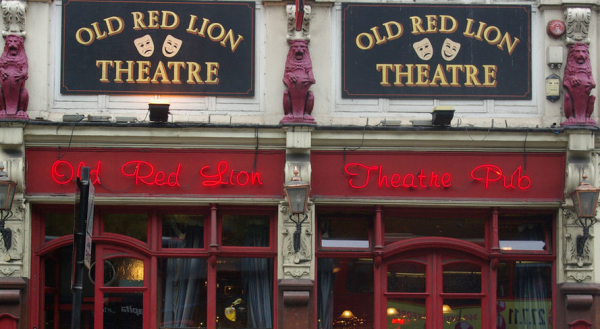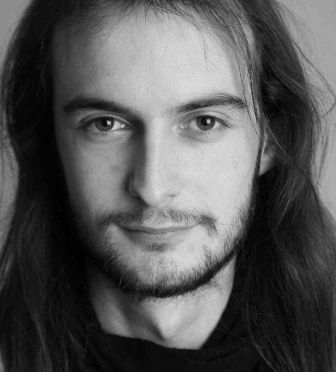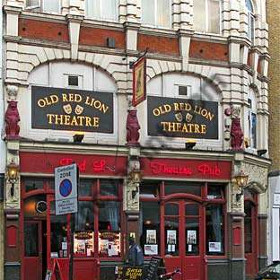Changing of the Guard: Stewart Pringle at the Old Red Lion – 'I want a bit of chaos'

© Adam Bruderer
What attracted you to the job at the Old Red Lion?
I liked the idea of having a building to play with, basically. Of being able to provide a strong and visible platform for the kind of theatre that I wanted to see and the kind of people I wanted to see working in theatre. The Old Red Lion has such a great history and it's had so many people make their start here or have their breakthrough, and for such a small space it really punches hard. I'd also done my own show here in 2013 and totally fell for it then.
What was your background prior to this, and how did that prep you for the job?
I'd been producing the London Horror Festival for a few years, which I co-created in 2010, which obviously had a very specific remit, but it gave me some great experience with programming and overseeing a season of work. I've also been working as a freelance critic for a number of years (for Time Out, Exeunt, WhatsOnStage and others) but I knew I didn't want to make that my entire involvement with theatre, and actually it's a mixture of roles which has worked really well for me. They synergise very well, as I'm spending so much time seeing new work and new companies, and then can try to poach the best of that for the theatre.
How would you describe your mission statement at the ORL?
I want work that is as visually and technically ambitious as it is textually. I want to see people radically transforming the space, I want it to feel utterly different every time you walk in there. And I want to see work that's confrontational, whether that's politically or emotionally or viscerally. It's a small space, you're never far away from the performers and I want to see artists who make a virtue of that.
What are your immediate challenges?
I want to find ways to make performing here more accessible to companies who are taking a risk with their work – to find ways to help them raise the money they need and create new routes from submitting a script to seeing it on the stage here. Putting a show up on the fringe is never cheap, and it's not like anyone's getting any richer, so we're going to have to get a bit inventive if we're going to prevent it from becoming purely a pursuit for the wealthy.

How do you assess the tenure of your predecessor?
I think Nick [Thompson] did a fantastic job – particularly with regards to transferring work to the West End and just massively boosting the profile of the theatre across the country. Nick has a terrific eye for exceptional popular theatre, and I hope he's going to continue to be involved with the Old Red throughout my time here.
Tell us about your first season
It's quite a variety. We're starting about as dark as it gets with a new production of Philip Ridley's Piranha Heights that's just looking astounding. I think people are going to be really shocked with how it uses the space, it's like nothing that's been tried here before. And then we go into a terrific double bill of Christmas shows – I adore Christmas and we're going absolutely all out with it. And then we have the premiere of Ella Greenhill's awesome Made in Britain, we have a great transfer from Edinburgh in The Liz & Dick Show, and then we have Lardo in March, which is a batshit crazy new comedy from Mike Stone set in the day-glo, buckfast-soaked world of Scottish wrestling. It's far, far too big and bizarre to fit into such a small theatre. Which makes me very happy.
What do you look for in a script?
I look for something that confounds expectations. I want something that comes out of nowhere and feels impossibly fresh, or just impossible. I'm not into angst, really. I've had enough angst. I want a bit of chaos.
How will you measure your success at ORL?
Cripes, no idea. I guess I'll feel it's a success if the work is good and the companies enjoy being here. I want this to be a place they can call home, and take risks and push themselves. That's all I want, really.
Who are your theatre heroes?
Joan Littlewood and Chris Goode.
If you could run another venue after ORL, which would it be?
I'd like to run somewhere outside of London, somewhere nice and really small on the coast or back home up north or something. And then programme work that was so bloody good and vital that everyone had to come out to see it. Move yer bloomin' arses, critics of London! I'd like that a lot.











